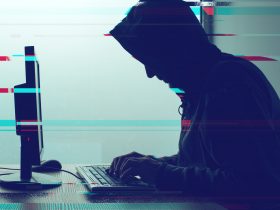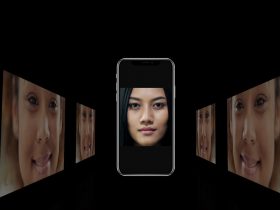The COVID-19 pandemic is having a profound impact on our personal and professional lives. People all over the world had to switch to working from home, and our digital lives changed fundamentally. To understand how life changed and how people shifted their daily routine to manage the blurring boundaries of private-work life, as well as the new cybersecurity threats in the digitalized world, Avira surveyed a representative sample of citizens in 4 nations: France, Italy, Germany, and the U.S.
The response to the pandemic was similar across the board. French, Italians, Germans, and Americans, all acquired new devices to make working from home easier. Laptops, PCs, and webcams were the most common purchases. People started spending more time on their mobile devices to keep connected to the news and their loved ones.
The United States is one of the countries with the highest percentage of the labor force working from home. Almost half of Americans work from home, and tech giants like Facebook or Google are embracing this model. Stanford economist Nicholas Bloom talks about a new “working-from-home economy,” which is expected to continue post-pandemic.
“We see an incredible 42 percent of the U.S. labor force now working from home full-time. About another 33 percent are not working – a testament to the savage impact of the lockdown recession. And the remaining 26 percent – mostly essential service workers – are working on their business premises. So, by sheer numbers, the U.S. is a working-from-home economy. Almost twice as many employees are working from home as at work.”
(Nicholas Bloom in an interview with May Wong)
How does working from home adoption differ across generations?
Young workers are leading the way out of the office
As remote working is gaining momentum in the United States, we can note a similar trend across age groups: 51% of Americans ages 18-24 are working more from home compared with 39.9% for the population aged 55+. The 35-44 age group is the most likely to have shifted to remote work, with 68.7% of the population now working more from home than before.

Industries also react differently to the pandemic. The most impacted industries are finance and IT, with 78.8% and 76.7% reporting that they work from home more than before. Other heavily affected sectors include education (67.9%) and government (62.5%), with retail the least affected (32.9%).
The pandemic has impacted men’s remote working situation more than women
A greater share of men (57.3%) report now working from home compared to women (46.5%). The impact on remote working has been felt especially strongly among the 35-44 age group, with 68.7% of users reporting they work more from home than they used to, versus 49.6% for the 45-55 age group and 54.5% for the 25-34 age group.
How did Americans improve their home office?
With their homes converted into offices, Americans also had to adjust their living ecosystem to accommodate better working conditions: 46.3% of respondents bought a new PC or laptop during the lockdown. Besides acquiring new devices, just under half of Americans took measures to improve their working environment: 29.9% improved their network by changing the wireless provider or improving the Internet plan, while 34.2% improved their router.
Men are more likely to change their work environment than women (58.6% versus 41.5%). The 35-44 age group has made the most improvements to their work environment, with 75% of participants investing in new devices or services. At the same time, it is worth mentioning that even though people made important purchases, only 24.0% of participants who improved their home environment invested in security and privacy.
Cybersecurity risks when working from home
When questioned if they use personal devices for work, 67.3% on average responded ‘Yes,’ with 78.2% of respondents from the 35-44 age group answering in the affirmative. With such high risks of sharing confidential information and data breaches, companies are slightly lagging in their efforts to secure their employees – 56.5% overall of respondents declared that their companies provided protection, 72.1% within the 35-44 age group benefit from protection tools provided by their employers. The age group 35-44 is also the most concerned about digital security threats.
Protect yourself from cyberthreats
Avira Free Security provides complete privacy and protection
Cybercriminals took advantage of the situation and planned elaborate attacks targeting employees working from home. The Twitter hack is a prime example of how cybercriminals can exploit the vulnerabilities of home office environments. Overall, the number of cyberattacks has increased significantly since the start of the pandemic. In the first six months of 2020, Avira detected and blocked a total of 639,061,218 malicious events. Avira’s 2020 midyear malware threat report shows an increase of 74% in script malware, 36% more adware detections, and 30% more Office and script-based attacks.
Only 24.0 % of the respondents added security to their personal devices or home network, although 67.0% use personal devices for work. Additionally, for 43.0% of the respondents, the employer did not provide any tools to secure their personal laptop or computer, which means the computers that people use for work are connected to the home internet network, opening a critical window for malicious threats.

How are Americans preparing for future lockdowns?
The pandemic forced us to radically change our lifestyle, form new routines, and had a significant impact on our professional lives. Changing the work environment caught us all off guard – unprepared or not adequately equipped to face the lockdown. We asked respondents what additional technology, if any, they would wish to buy to improve their home tech setup. Many are considering buying new tech, the top priorities being a new computer (26.8%), mobile phone (23.1%), tablet (22.4%), and smart T.V. (20.7%).

Smart devices can help ease the feelings of isolation while improving communication and work productivity. A muted risk in shifting our activities online remains the security threats and how still little unaware we are of the dangers we are exposing our devices without appropriate layers of protection. A security solution such as Avira Free Security can help you protect your devices and your privacy online.














